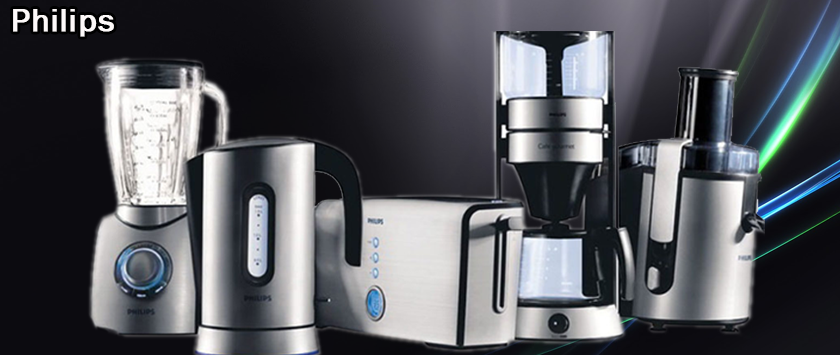Call To Order

Philips specialises in healthcare, lighting and consumer lifestyle markets. It is one of the largest electronics companies in the world. A subsidiary of the Netherlands based Royal Philips that was founded in 1891, this company caters to the improvement of the health and lifestyle of its consumers worldwide. It is at the forefront of innovations to improve the lives of people with its products and solutions. The Philips group is classified into three main divisions - Philips Consumer Lifestyle, Philips Lighting and Philips Healthcare. The Company's core products are consumers electronics, domestic appliances, and personal care products. The Company offers products such as televisions, audio and video players, home theatres, shavers, electric toothbrushes, remote controls, and ultrasound devices. Philips Electronics serves customers worldwide.
Philips was founded by Frederik Philips and his son Gerard, who had been an engineer with the Anglo-American Brush Electric Light Corporation Ltd. Gerard Philips continually experimented to improve the longevity of light bulbs, at the same time optimizing production procedures. His younger brother Anton Philips later joined the firm, adding the commercial savvy that formed the basis for the company’s international expansion. The company remained driven by technology, however, often striving for high quality.
Philips benefited from the Netherlands’ neutrality in World War I by capturing many new markets. In 1924 Philips, together with the American manufacturer General Electric Company and Osram GmbH (now a wholly owned subsidiary of German manufacturer Siemens AG), formed the Phoebus cartel in order to divide up the light-bulb market worldwide and to set the standard life of a light bulb at 1,000 hours. By 1919 Philips had expanded into the production of radio tubes. In 1927 it introduced a simple, affordable radio, and by 1933 it was the world’s largest radio manufacturer.
In the 1930s Philips shifted much of its production outside the Netherlands to avoid the import controls that many countries established during the Great Depression. Just before the outbreak of World War II, Philips moved its headquarters to Curaçao, keeping the company out of German control. Nevertheless, Philips’s role in the war became the subject of some controversy.
After 1945 Philips expanded its product range. It launched the Philips record label in 1951, acquired Mercury Records in 1960, and continued to invest in record labels such as Deutsche Grammophon, Decca, and Motown through its PolyGram subsidiary (sold in 1998). Philips was much less successful in entering the computer business. By the time the company released its P-1000 mainframe system in the mid-1960s, the IBM 360 was well established as the market standard. The company did better with a range of minicomputers in the 1970s but missed out on the personal computer revolution. In 1986 Philips launched a personal computer with a proprietary operating system, years after other manufacturers had accepted Microsoft Corporation’s MS-DOS as the market standard. In 1992 Philips exited the computer hardware business, though it remained an important supplier of components to the industry.
In 1963 Philips launched a small battery-powered audio tape recorder that used a cassette instead of a loose spool. Philips let other manufacturers reproduce the technology royalty-free, quickly establishing cassette tapes as a standard worldwide. Philips fared less well with its video technology. Although it demonstrated the world’s first videocassette recorder (VCR) in 1971, the company was slower to market than the Japanese, who launched Betamax in 1975 and VHS in 1976. Philips did not start production of VHS players until 1984.
Meanwhile, Philips had developed a new technology to play back video, using a laser to read information from a disc. Introduced in 1978, LaserDisc technology never caught on, but it did lead to another major success: the compact disc (CD). A key agreement with Sony Corporation in 1979 and a series of deals with music companies ensured the format’s success.
In a series of acquisitions in the 1970s, Philips established a position in the American consumer electronics market, starting with the purchase of television maker Magnavox in 1974. In 1991 Philips launched CD-I, a multimedia player aimed at the living room. More expensive than electronic game consoles and lacking the capabilities of personal computers, the CD-I player never caught on. In 1992 the digital compact cassette was introduced as a digital successor to the audio cassette.
By the early 21st century, Philips was also a leading producer of portable defibrillation units, ultrasound systems, and computed tomography (CT) scanners. Philips has manufacturing and marketing subsidiaries throughout the world.
Kitchen activities become simpler as you can do almost everything without spending much time, energy and fuel. Induction cooktops, electric cookers, juicer/mixer/grinders, hand blenders, sandwich-roti makers, coffee makers, pop-up toasters and food processors are some of the kitchen appliances that Philips produces. All these products ensure that you spend less time cooking and more time enjoying the food. Electric irons from Philips come with various features that make them easy-to-use as well as give better performance. Keeping the house neat and clean is not a cumbersome work anymore as Philips vacuum cleaners will help you do so.
The brand provides a complete range of products that makes life more convenient and are available on deluxe, the online megastore, and you can get them delivered to your doorstep.
PRODUCT CATEGORY
HOME & KITCHEN
Kitchen & Dining
- Blenders & Choppers
- Mixers & Extractors
- Fryers & Actifryers
- Cookers
- Food Processors
- Toasters & Bread Makers
- Coffee Grinder & Maker
- Steamers
Home Appliances
- Pressing Irons & Boards
- Vacuum Cleaners
OTHERS
- Health & Beauty
- Hair Dryer
Kindly click on the link or image below to place order
https://www.deluxe.com.ng/products3/brand/philips
www.deluxe.com.ng
Category